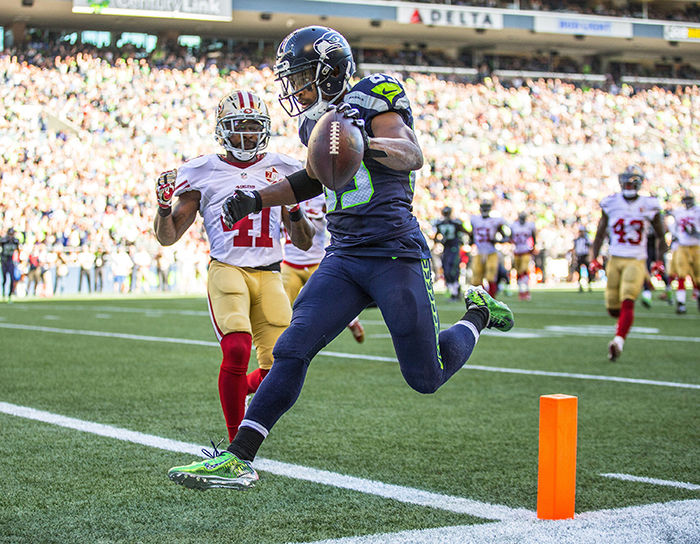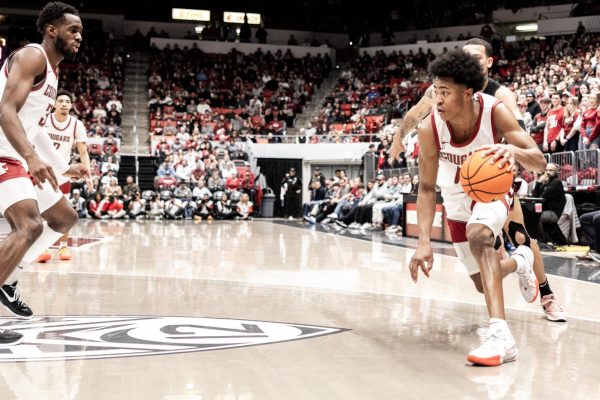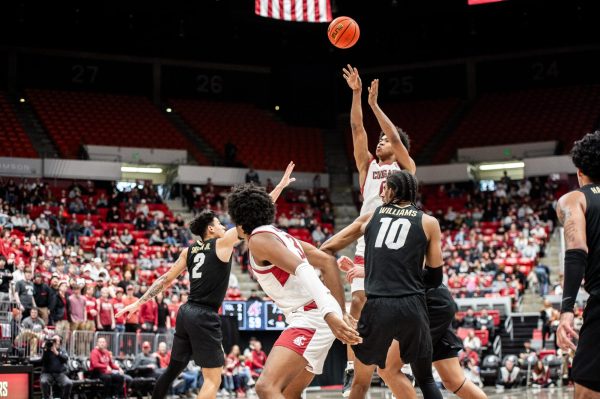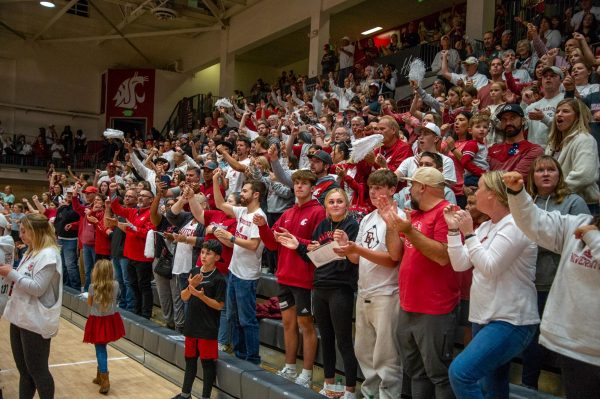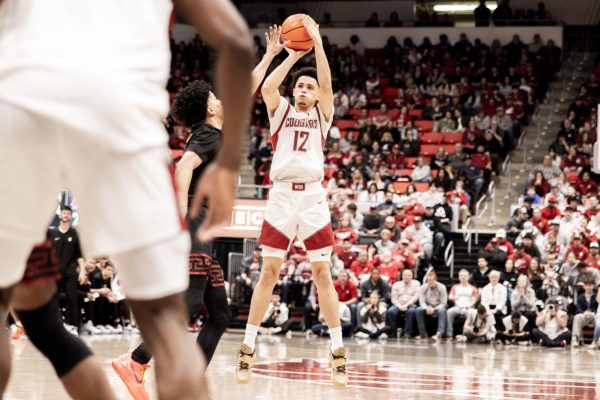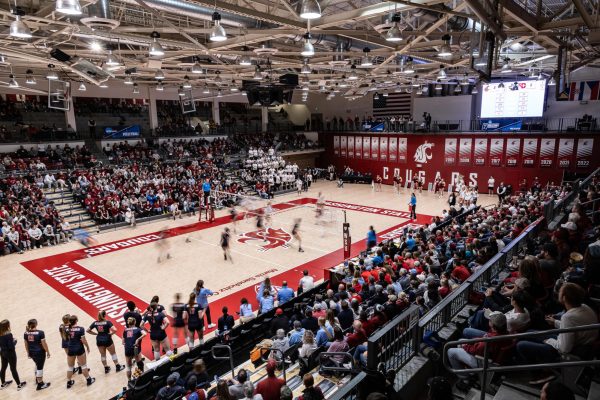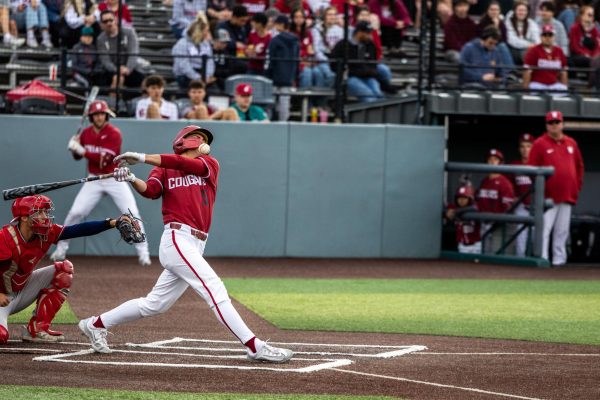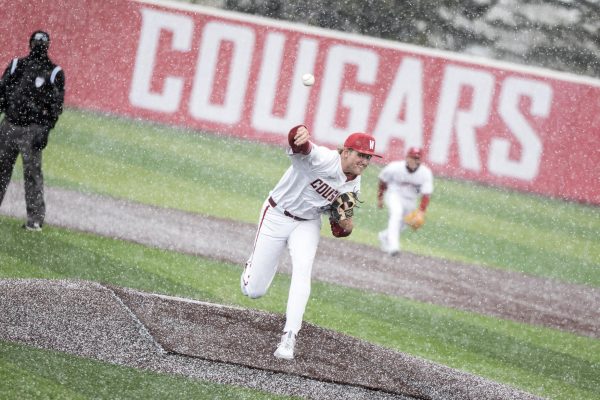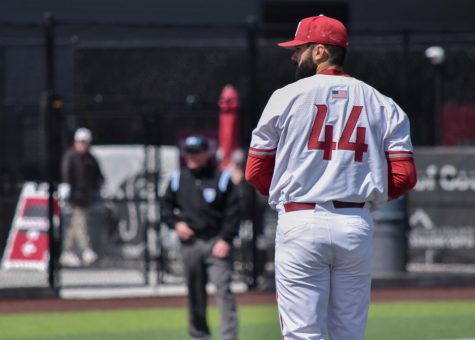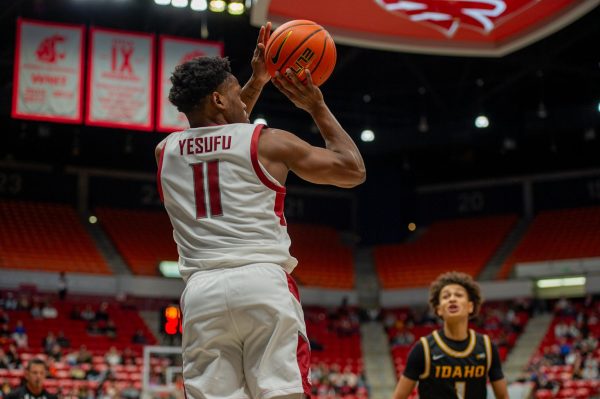It’s been a long time coming for safer football helmets
Seattle Seahawks’ Doug Baldwin scores on a 16-yard pass from Trevone Boykin in the fourth quarter against the 49ers on Sept. 25.
December 9, 2016
Seattle Seahawks wide receiver Doug Baldwin expressed his disgust in the stunted evolution of football helmets in a CNN article.
“What I wore when I was playing little league football is almost close to what I’m wearing now as a professional athlete,” Baldwin admitted
He brings up an excellent but scary point. Not just at the professional levels, but from peewee to high school, millions of athletes trust overrated plastic shells to protect them from injuries like concussions, which can lead to chronic traumatic encephalopathy (CTE) later in life. It can be difficult to trust something though, especially when the statistics tell you otherwise.
Today’s hollow helmets produce hollow results as found in a study conducted by Frontline last year. Frontline concluded that “87 out of 91 former NFL players have tested positive for the brain disease.”
The study also looked at individuals who played football at various levels including high school and college. Out of those 165 former players tested, 131 tested positive for CTE. That is not a coincidence, but rather a possible consequence of playing football.
That’s where VICIS comes into play. Located in Seattle, VICIS is a relatively new company that is disgusted by head injuries that derive all too often from football. To prove it, they’ve taken it upon themselves to create a safer helmet as a possible alternative. Rich Curren, the Design Director for VICIS, criticized the current helmets used today by comparing them to “cars in the ‘70s” during the unveiling video of their new product.
They are introducing the ZERO1. With the help of Isaac Newton’s scientific theory and the today’s information and technology, VICIS created something futuristic. The ZERO1 is a revolutionary idea that, per the company’s website and video, the helmet absorbs hits rather than rebounding them. Many have compared it to a car bumper because of how it flexes around the object that it connects with before shape-shifting back into form.
The new helmet is marketed as the next step in the evolution of football helmets. While many agree that it is a genius idea, some critics question if the new helmet will ever go mainstream.
The University of Washington Huskies and University of Oregon Ducks were set to be the first two collegiate football teams to try out the helmets this season. However, due to complaints from the players over the uncomfortable fit, VICIS pulled their helmets for modifications.
That did not stop 35 investors from showing that they believe this company still has a lot of potential. Two months after the setback and $4 million later, investors reached into their wallets to help a potential stock. Currently, the company is making small adjustments to what could be the future of football helmets.
According to GeekWire, VICIS said that 25 NFL teams and 30 NCAA teams thinks the helmets seem promising. They “had expressed interest in testing the helmet for the 2016 season.” At this point, the NFL and the NCAA are really the main target markets for this new helmet. Priced at $1,500, it would be difficult to try and sell this product to a team or individual that is not a part of a major organization.
If this product is successful after comfort modifications are made, consumers will most likely see a lowered price and a new marketing strategy to reel in the millions of athletes that play football every year.
About four years ago, the National Football League (NFL) settled a lawsuit, paying $765 million to former athletes for covering up the risk of concussions that playing football poses. Indubitably, it does not take a rocket scientist to understand that football is a dangerous sport. Head injuries remain one of the most prominent long-term health effects of playing football. Regardless of when the lawsuit came about, the issue remains a risk for athletes.
To redeem itself for purposely and unethically avoiding the topic, the NFL owes it to the athletes to implement helmets that do a better job of preventing head injuries now rather than masking the problem until after a player retires.

